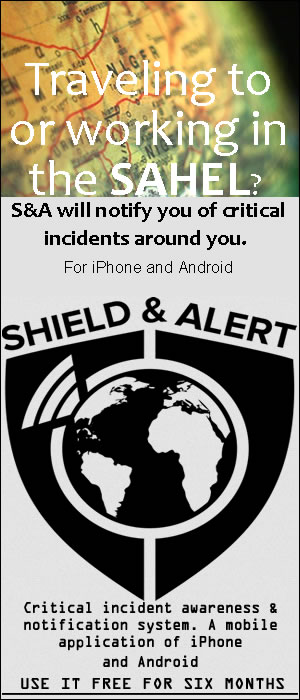By Arezki Daoud: France is experiencing an unprecedented backlash in the Sahel and in West Africa. Disastrous post-colonial policies forced the people of Mali, Niger and Burkina Faso to expel French troops and diplomats, reducing Paris’ entrenched but counterproductive influence in the region. Now, France is also concerned about Senegal, which remains, with Ivory Coast, the last two most reliable allies of Paris in West Africa.
The election of 44-year-old Diomaye Faye as the new president of Senegal has been rather surprising in many aspects. Strangely, Faye assumed the office of president on April 2, 2024, less than three weeks after he was released from prison, along with his mentor, top opposition leader Ousmane Sonko. Prior to their release, the country was in political turmoil after outgoing president Macky Sall ordered the postponing of the April elections. Macky Sall’s decision yo delay the vote, was driven by his efforts to impose Prime Minister Ba as his successor, a move seen by many as a way to protect France’s interests in the country in the face of guaranteed victory for the opposition led by the highly popular Ousmane Sonko. This ignited a popular backlash that led to deadly riots. President Sall’s objective, among many others, was to prevent the rise of a new breed of politicians in the region who have been calling for more sovereignty, a message that was directed at France, with the duo Sonko-Fay insisting on Pan-Africanism as the way forward. Allowing Sonko to take power was perceived by France as a major risk, hence giving implicit support to Macy Sall and his plan to impose Prime Minister Ba as the future president.
Sonko and Faye’s exit from prison some 10 days before the elections, with the later elected president and the former named prime minister, raises major questions. Was there a deal that would allow France to perpetuate its influence in Senegal and beyond? Only time will tell.
From an American perspective, what is certain is that Senegal is strategic in the greater context of the Sahel and West Africa. It has direct access to the Atlantic and the Gulf of Guinea and is a stone’s throw away from the Mediterranean with important consequences on security and migrations.
Senegal has a border with the highly unstable and increasingly anti-western region of the Sahel and Mali to the east. With the exit of France from the region, Russia has become the favorite partner of the Sahelian juntas. This is while Senegal’s new leaders endorsed what the juntas in their Sahel neighborhoods have been doing to fight terrorism, including boosting security cooperation with Moscow. The Americans are likely looking at the French behavior and experience in dealing with the Sahel and may be working to prevent the same to take place in Senegal. That is how to convince the new leaders there not to shift to Moscow. But the Sonko-Faye duo has never ruled out more engagement with Russia for the sake of diversifying partnerships.
Equally importantly, Senegal is set to begin producing oil and gas this year (2024). There is ongoing work to develop the Greater Tortue Ahmeyim field to produce 2.3 million tons of liquefied natural gas (LNG) per year. The Yakaar-Teranga gas field is estimated to hold some 25 trillion cubic feet of gas. The Sangomar field is also expected to deliver its first barrels of crude oil in only a few months, with its developers projecting output of more than 200 million barrels. More offshore exploration led by the French and the Nigerians is taking place, and so we should expect Senegal to become an important energy producer going forward. In his address to the nation, the new president delivered a positive message to foreign partners and investors, insisting that his country will protect their interests within Senegal’s and international law. This means that these projects will not be disrupted by these most recent political events.
All these developments and their future outcome have most likely forced the hands of the outgoing president to abandon his pursuit of establishing an anti-democratic regime. It is possible that the US may have convinced him to give up and not follow the path sought by France, clearly risking a repeat of what happened in Mali, Burkina Faso and Niger. Allowing the Senegalese people to choose their leaders could prevent a coup that no one wants in a critical region of West Africa. But what kind of deal the new leaders made will likely take months before we know.
By the way, outgoing president Macky Sall refused to take part to the ceremony of handing over power to Faye. Instead, he fled to Morocco to shelter in a luxury retreat in his Marrkesh villa (read here).
In the analysis that follows below, we argue that after having lost its footing in large swaths of the Sahel, having been expelled from Burkina Faso, Mali and Niger, France will have to maneuver in a very careful manner to preserve its presence and its interests in Senegal now led by a new president whose declarations have highlighted his left-leaning orientations of sovereignty and Pan-Africanism. Global geopolitical events seem to overwhelm foreign affairs decision makers in Paris, highlighting once again the difficulties facing President Macron and those around him in adjusting to fast moving events.
You must login first | Continue to the analysis | Subscribe




